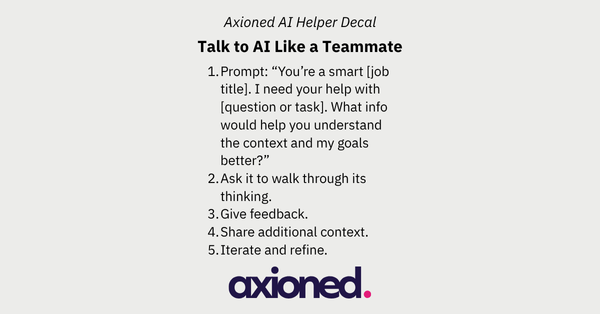Composable CX: The Future of Your Website's Innovation & Growth
Learn how migrating to Composable CX/DXC unlocks new opportunities with enhanced customization, scalability, security, SEO, and integration.

Companies are always looking for ways to innovate and enhance their website or platform experience. A growing trend is moving away from traditional monolithic systems and drag-and-drop builders to more customizable, robust solutions. While drag-and-drop tools have made website creation accessible, they can limit growth and innovation. Here’s why migrating to a Composable CX, also known as Digital Experience Composition (DXC), can unlock new opportunities for your business.
Customization and Flexibility
Many website builders are designed to be user-friendly, offering predefined templates and components. While this simplicity is beneficial in the short term, it becomes a major drawback for companies needing unique, customized solutions to support ongoing scale and growth.
Composable architectures, such as those provided by modern content platforms - like Contentful, Sanity, etc. - allow for greater flexibility. Such platforms enable businesses to implement bespoke features that cater specifically to their user base. This level of customization can enhance the user experience, streamline operations, and differentiate a company's website.

Scalability and Performance
As your needs grows, so do the demands on your website.
Simplified website builders, often bogged down by unnecessary code and limited optimization capabilities, can hinder your site’s performance.
Composable solutions are designed with scalability in mind. They can handle increased traffic and data more efficiently, ensuring that your platform remains responsive and reliable.
Enhanced Security
Traditional systems, due to their generic nature, can be more vulnerable to security breaches. Composable platforms provide better security control. Developers can implement specific security measures tailored to the unique needs of the business, ensuring a higher level of protection for user data and business operations. Composable ecosystems come with great separation of concerns.
SEO Advantages
Search Engine Optimization (SEO) is crucial for visibility and attracting new customers.
Simplified website builders often have limitations that can negatively impact SEO. Composable platforms allow developers to optimize every aspect of the site, from load times to metadata, improving search engine rankings. Furthermore, these platforms can integrate more seamlessly with digital marketing tools and strategies, enhancing overall marketing effectiveness.
Integration Capabilities
Businesses often rely on a suite of tools and services to deliver their products or services. Composable platforms offer superior integration capabilities, allowing for seamless connections with third-party services, APIs, and other software. This interoperability ensures that all components of your business work harmoniously, enhancing efficiency and providing a better user experience.
In conclusion...
While simplified website builders and monolithic systems have their place, companies aiming for growth and innovation will no doubt need to consider migrating to composable platform features at some point on their scale/growth journey.
The advantages in customization, scalability, SEO and integration make it a compelling choice.
By migrating to a Composable CX/Digital Experience Composition (DXC), companies can exceed evolving user expectations, paving the way for sustained growth and innovation.




